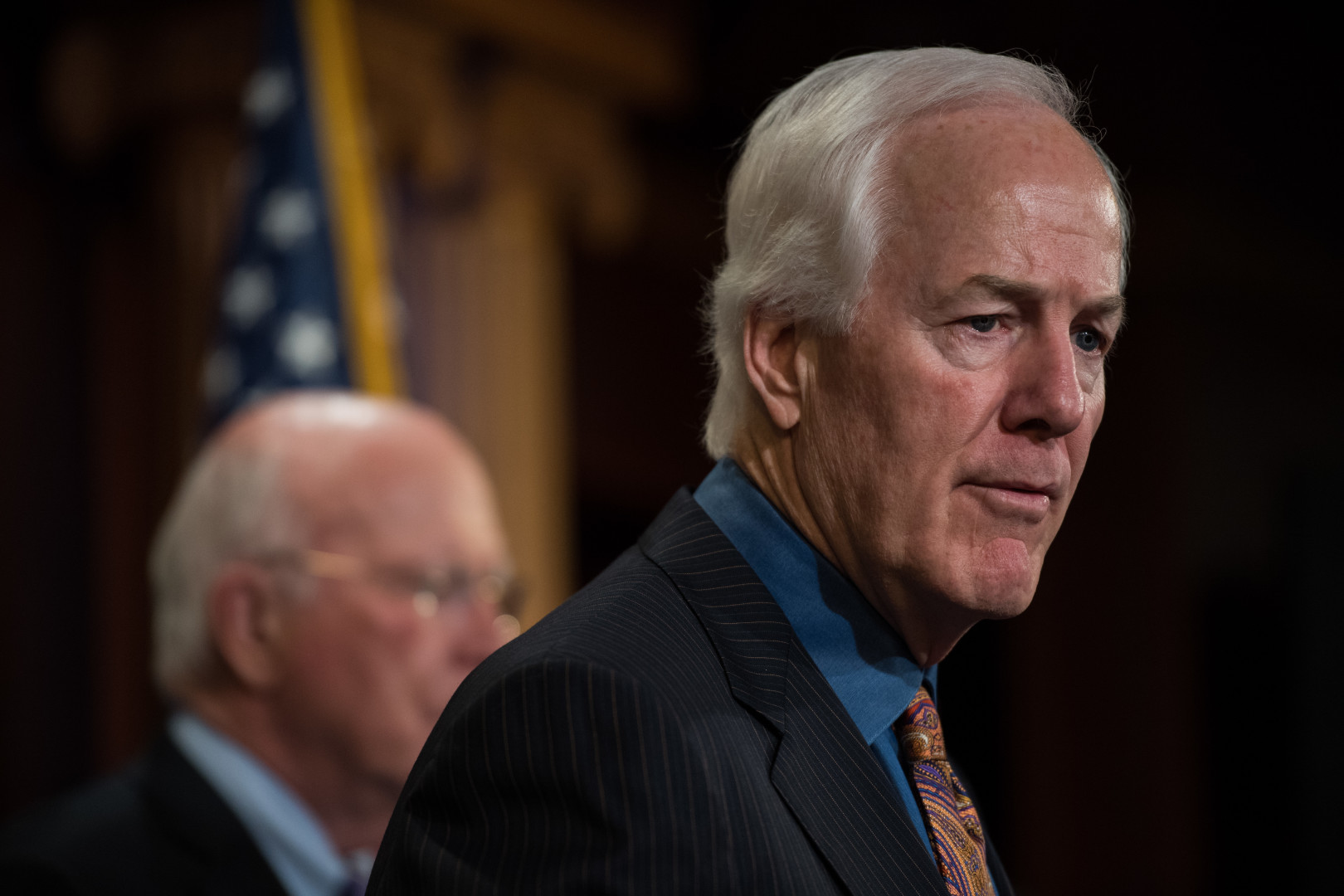April 28, 2016 at 5:55 pm ET
- Share on Facebook
- Share on Twitter
- Share on LinkedIn
- E-mail to a friend



Senators are heading in to a weeklong recess with no clear way forward on the spending bills that constitute the annual government funding process. But there’s a silver lining for a bipartisan group of senators: A long-awaited overhaul of the criminal justice system might have a chance at a Senate vote.
What looked like a smooth start to the Senate appropriations process loudly derailed this week, adding the year’s first spending bill to a growing list of issues caught in the increasingly caustic crossfire of election-year politics.
For the second time in as many days, the Senate on Thursday failed to end debate on an otherwise uncontroversial Energy and Water Development spending bill. Democrats blocked the procedural motion because they oppose an amendment by Sen. Tom Cotton (R-Ark.) that would prohibit the Obama administration from purchasing heavy water from Iran. The White House has said it would veto any bill that includes the provision because it upends the Iran nuclear deal.
Senate Democrats consider Cotton’s amendment a violation of the informal understanding both parties agreed to in order to consider individual spending bills. Sen. Dick Durbin (D-Ill.), the chamber’s No. 2 Democrat, signaled Wednesday that the impasse could jeopardize other spending bills.
Senate Majority Leader Mitch McConnell (R-Ky.) on Thursday accused Democrats of hiding from a tough vote. “They filibustered the overall bill — a bill that passed committee with unanimous bipartisan support, remember — to prevent even the possibility of voting on this amendment,” he said on the Senate floor.
Cotton on Wednesday told Morning Consult that he would be willing to withdraw the heavy water amendment if he was assured the measure would see floor consideration in some other form.
Sen. Chuck Schumer (D-N.Y.) appeared to leave the door open to that prospect in a press conference Thursday, saying he was still “hopeful” that both parties would find a resolution to the Iran amendment dispute.
“We’re willing to come to some agreement, a compromise, that is acceptable to the administration,” he said, suggesting that the ball lies in McConnell’s court. “If they want to bring it to the floor [separate from an appropriations bill], they control the floor, they could easily do that.”
Schumer noted that the Cotton amendment was a “poison pill” that has to be withdrawn from the spending bill in order to move it forward. He linked the blowup over Cotton’s amendment to a host of other issues Democrats say the GOP-led chamber has been too slow to act on.
Still, it turns out congressional gridlock may yield dividends under the right circumstances. In this case, criminal justice overhaul is ripe for the picking.
The chances that a bipartisan criminal justice overhaul package would pass the Senate before the end of the year had seemed to dim over the last few weeks. A robust appropriations calendar and the exigencies of the November elections imposed severe time and political restraints on the floor schedule.
But the effort might have another gasp at life if the door is closed on spending bills. On Thursday, a bipartisan cohort of senators pushing the criminal justice overhaul announced new progress on winning colleagues to their cause.
“More and more of our fellow senators are recognizing this mismatch between crimes and penalties and this bill takes a big step in fixing the problem,” said Sen. Mike Lee (R-Utah), one of the bill’s authors. “I am grateful for the feedback we have received from our colleagues on this bill, and I believe it is a better product today thanks to the efforts of those joining us as cosponsors today.”
The original version of the bill moved out of the Senate Judiciary Committee on strong 15-5 vote last October. It would reduce mandatory minimum sentences for non-violent offenders and offer judges more discretion in sentencing minor drug offenders. It would also encourage the creation of programs designed to reduce recidivism and help inmates reenter society.
After the committee vote, it quickly became clear that the legislation would need some “fine-tuning,” Judiciary Committee Chairman Chuck Grassley (R-Iowa) said Thursday. Conservative senators such as Cotton and GOP presidential candidate Ted Cruz of Texas warned that the effort could result in dangerous criminals being released from prison early.
That’s a characterization that supporters of the effort, such as former judge and Senate Majority Whip John Cornyn (R-Texas), have sharply rejected. Cornyn on Thursday underscored his commitment to keeping violent criminals from benefiting from the criminal justice package.
“When you talk about criminal justice reform, to me the number one issue is public safety,” he said. “The number two issue is public safety. The number three issue is public safety.”
The new version of the bill is designed to accommodate these with public safety concerns. The latest draft explicitly prohibits those convicted of violent felonies from qualifying for early release and no longer contains language that could have allowed convicted criminals in possession of a firearm from being released early.
Those changes have brought on new co-sponsors such as Sens. Steve Daines (R-Mont.) and Mark Kirk (R-Ill.), bringing the number of senators backing the legislation to 37. The original proponents of the bill hope the momentum will convince McConnell to schedule a floor vote for the legislation soon.
But at least one of the bill’s major critics said he remains deeply troubled with the project, despite the revisions.
“Instead of responding to the honest concerns of law-abiding Americans and law enforcement officers, this revised bill only raises more serious questions,” Cotton said in a statement. “It is the victims of crime who will bear the costs of this dangerous experiment in criminal leniency and every community’s law enforcement officers who must deal with that cost daily.”